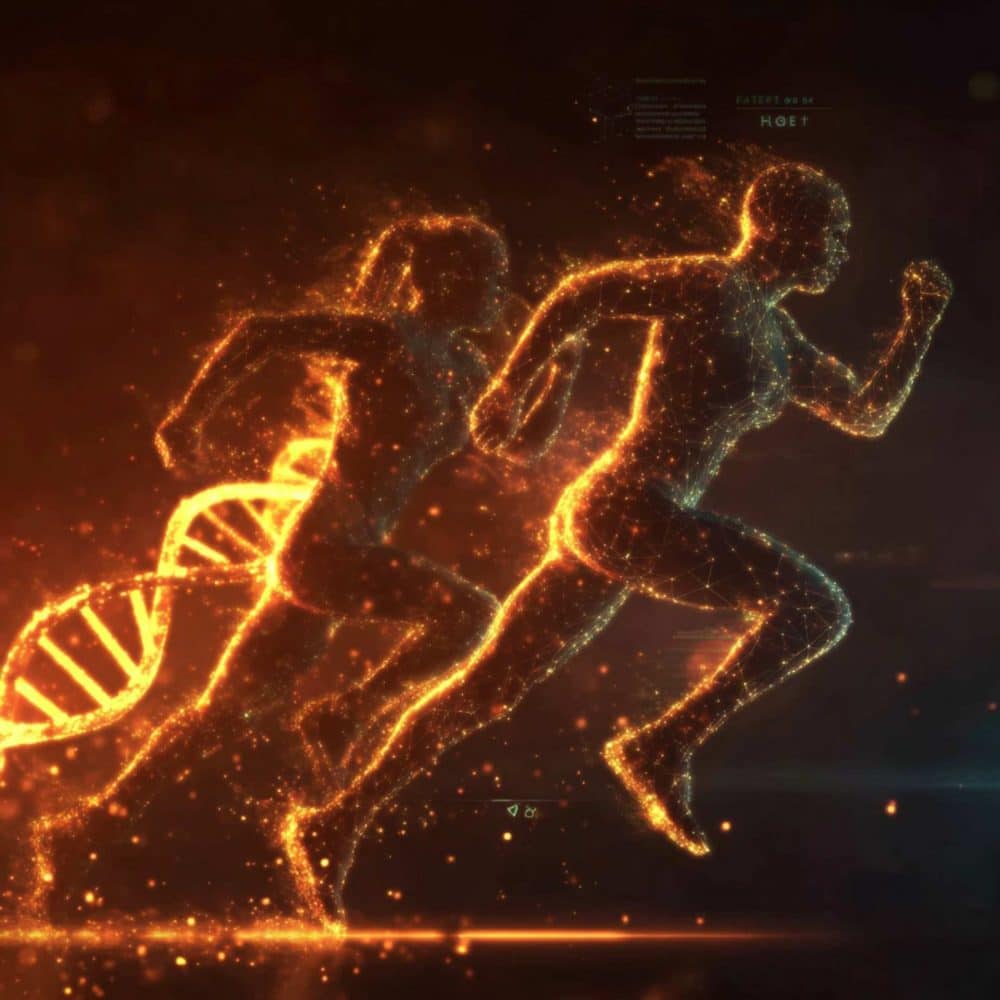Comprehensive Health Panel – Pathology
₹ 49,999.00 Original price was: ₹ 49,999.00.₹ 19,999.00Current price is: ₹ 19,999.00.
Health is not just about one organ or system. The Comprehensive Health Panel combines all six panels (Genomic Risk, Cardio-Metabolic, Gut & Organ Health, Neuro-Endocrine, Nutrition & Lifestyle, and Fitness & Exercise) into a single all-in-one analysis. This makes it the most powerful preventive health tool—giving you both genetic foresight and real-time pathology data across your entire body.
Why it matters:
The Comprehensive Health Panel is the ultimate preventive healthcare tool your genetic health passport and holistic roadmap for lifelong wellness. It ensures no system is overlooked, aligning your lifestyle with your DNA across all areas of health. For individuals, it brings peace of mind, proactive care, and years saved from guesswork. For families, it means passing on a healthier future, reducing risk, and empowering confident health decisions for generations.
Risks of not doing this test:
- Fragmented view of health without integration of all systems.
- Delayed prevention across multiple organ systems.
- Higher costs and stress from reactive rather than proact.
How DNA + Pathology Work Together
DNA shows your predisposition—the health risks you may face in the future. Pathology shows your present—the state of your body right now. Together, they create a full health passport, allowing you to:
- Detect risks decades before symptoms appear.
- Confirm which risks are already active with pathology.
- Take preventive action through diet, lifestyle, supplements, or medical care.
- Protect your long-term health and avoid costly treatments later in life.
DNA Coverage
200+ genes screened across cancer, rare diseases, cardiovascular risks, diabetes predisposition, organ health, thyroid and brain wellness, nutrition, lifestyle, and fitness.
Pathology Coverage
Full blood chemistry and organ function markers including:
- Heart: Lipid profile (cholesterol, triglycerides), hs-CRP for inflammation.
- Pancreas: HbA1c and glucose levels for diabetes monitoring.
- Kidney: Creatinine, urea, electrolytes.
- Liver: Enzymes (SGPT, SGOT), bilirubin, alkaline phosphatase.
- Thyroid: T3, T4, TSH, thyroid antibodies.
- Nutrition: Vitamin D, B12, Folate, Iron, Calcium, Zinc.
- Hematology: Complete blood count (CBC), platelets, ESR.
- Fitness: CPK enzyme, testosterone, cortisol for muscle and recovery balance.
What you’ll learn:
Hereditary risks for cancer, rare diseases, and medical conditions.
Heart and pancreas health, including diabetes predisposition.
Kidney, liver, intestine, and gallbladder wellness markers.
Thyroid, brain, and mental health predispositions.
Nutrition blueprint: diet, deficiencies, intolerances, addictions.
Fitness insights: endurance vs power, recovery, injury risk.
Hereditary risks for cancer, rare diseases, and medical conditions.
Heart and pancreas health, including diabetes predisposition.
Kidney, liver, intestine, and gallbladder wellness markers.
Thyroid, brain, and mental health predispositions.
Nutrition blueprint: diet, deficiencies, intolerances, addictions.
Fitness insights: endurance vs power, recovery, injury risk.
How It Works
One-time home blood collection by a professional.
Broad screening across 200+ clinically relevant genes.
Comprehensive health dossier delivered in 28 working days.
One-time home blood collection by a professional.
Broad screening across 200+ clinically relevant genes.
Comprehensive health dossier delivered in 28 working days.
Report includes:
Full dashboard with all seven panels consolidated.
Holistic action plan: diet, supplements, lifestyle, exercise, and clinical follow-ups.
Personalized roadmap for lifelong preventive healthcare.
Heart Conditions (9 screened)
• RYR2, CASQ2: Catecholaminergic polymorphic ventricular tachycardia – dangerous arrhythmias triggered by stress or exercise..
• LMNA, DES: Dilated cardiomyopathy – enlarged heart chambers that weaken pumping ability..
• LDLR, APOB, PCSK9: Familial hypercholesterolemia – extremely high cholesterol leading to early heart disease..
• MYH7, MYBPC3: Familial hypertrophic cardiomyopathy – thickened heart muscle that may cause sudden cardiac death in athletes..
• ACTA2, MYH11: Familial thoracic aortic aneurysm – weak aorta that can rupture without warning..
• COL3A1: Vascular Ehlers-Danlos syndrome – fragile blood vessels prone to rupture..
• KCNH2, SCN5A: Long QT syndrome – electrical disorder that increases risk of sudden fainting or cardiac arrest..
• BAG3, DES, FLNC: Myofibrillar myopathy – muscle weakness that can also affect the heart.
High-Risk Cardiovascular Traits
• CDKN2B, HNF1A: Coronary heart disease – plaque buildup in arteries.
• GCKR, PNPLA3, ZPR1: Hypertriglyceridemia – high triglyceride levels linked to pancreatitis and heart disease.
• HMGCR, HNF1A, LDLR: Hypercholesterolemia – high LDL (bad cholesterol).
• GJA1, CUL4B, NCOR2: Hypertension – high blood pressure with genetic component.
• CASQ2: Sudden cardiac arrest risk due to abnormal calcium handling.
• MYH6, ZNF365: Atrial fibrillation – irregular heartbeat increasing stroke risk.
Pancreas Condition (1 screened)
High-Risk Pancreatic Traits
Cancers (19 conditions screened)
• APC: Familial adenomatous polyposis – increases colon cancer risk from polyps.
• MLH1, MSH2, MSH6, PMS2: Lynch syndrome – higher risk of colon, uterine, and gastric cancers.
• RET: Multiple endocrine neoplasia (types 2A & medullary thyroid carcinoma).
• MUTYH: MUTYH-associated polyposis – multiple colon polyps, colon cancer risk.
• VHL: Von Hippel-Lindau syndrome – risk of kidney, adrenal, and brain tumors.
• PALB2: Hereditary breast cancer – increased breast cancer risk.
• MEN1: Multiple endocrine neoplasia type 1 – affects parathyroid, pituitary, pancreas.
• TSC1, TSC2: Tuberous sclerosis – benign tumors in brain, kidneys, skin, heart.
• NF2: Neurofibromatosis type 2 – benign tumors in brain and spinal cord.
• PTEN: PTEN hamartoma tumor syndrome – increased breast, thyroid, kidney cancers.
• WT1: Wilms tumor – kidney tumor in children.
• SDHB, SDHC, SDHD: Paraganglioma and pheochromocytoma – rare tumors in adrenal glands.
• BMPR1A, SMAD4: Juvenile polyposis syndrome – colon and stomach polyps with cancer risk.
• STK11: Peutz-Jeghers syndrome – polyps and pigmentation, increased GI cancer risk.
• TP53: Li-Fraumeni syndrome – multiple cancer risks including breast, sarcomas, brain tumors.
• RB1: Retinoblastoma – eye cancer in young children.
Rare Diseases (12 screened)
• OTC: Ornithine Transcarbamylase Deficiency – urea cycle disorder, ammonia buildup, vomiting, confusion.
• RYR1, CACNA1S: Malignant hyperthermia – dangerous reaction to anesthesia, muscle rigidity, high fever.
• GLA: Fabry’s disease – affects heart, kidneys, skin; pain, kidney failure, strokes.
• RPE65: RPE65-related retinopathy – progressive vision loss leading to blindness.
• TTR: Hereditary transthyretin amyloidosis – protein deposits in nerves and heart, causing weakness and heart failure.
• HFE: Hereditary hemochromatosis – body absorbs too much iron, damaging liver, heart, pancreas.
• GAA: Pompe disease – affects muscles and breathing, weakness, heart enlargement.
• ATP7B: Wilson disease – copper buildup damaging liver and brain.
• FBN1: Marfan’s syndrome – affects connective tissue, long limbs, heart valve problems, aortic aneurysm risk.
• SMAD3, TGFBR1, TGFBR2: Loeys-Dietz syndrome – weak arteries leading to aneurysms, skeletal abnormalities.
• ACVRL1, ENG, SMAD4: Hereditary hemorrhagic telangiectasia – abnormal blood vessels, frequent nosebleeds, GI bleeding.
Medical Conditions (ACMG guidelines)
Loeys-Dietz Syndrome – pathogenic variant in SMAD3 gene detected. Recommendation: genetic counseling, cardiovascular monitoring, and proactive management to prevent aneurysm rupture.
Kidney & Intestine Risks (DNA findings)
• ABCG2: Gout – high uric acid buildup causing painful joint inflammation.
• SH2B3: Celiac Disease – autoimmune reaction to gluten, damaging the intestine.
• CARD9, RIF1, TNFRSF6, PTPN2, MST1: Ulcerative Colitis – inflammation and ulcers in the intestine.
Liver & Gallbladder Risks (DNA findings)
• PNPLA3: Non-Alcoholic Fatty Liver Disease (NAFLD) – fat buildup in the liver, which can progress to cirrhosis or liver cancer.
Thyroid Risks (DNA findings)
• CTLA4, TPO: Hashimoto’s Thyroiditis – autoimmune disorder leading to underactive thyroid (hypothyroidism).
• TG, TSHR: Congenital Hypothyroidism – thyroid hormone deficiency present from birth, affecting growth and development.
Brain & Neurological Risks (DNA findings)
• LRRK2, ATP13A2: Parkinson’s Disease – tremors, stiffness, and balance problems due to loss of dopamine neurons.
• ADRB1, PDE4D: Stroke – increased risk of blood vessel blockage or rupture in the brain.
• DRD2, NRG1: Schizophrenia – psychiatric disorder with delusions, disorganized thinking, and altered perception.
Macronutrient Processing (DNA findings)
• APOA2, PPARA: Fat metabolism – determines how well your body handles saturated fats.
• GC, MTHFR: Protein and folate metabolism – affects energy and muscle recovery.
• TCF7L2, ADIPOQ: Fiber response – influences satiety and blood sugar balance.
Micronutrient Deficiencies (DNA findings)
• GC: Vitamin D deficiency – affects immunity, bone health, and mood.
• SLC30A8: Zinc deficiency – influences wound healing, immunity, and fertility.
• SLC40A1, TMPRSS6: Iron deficiency – causes tiredness, pale skin, and low stamina.
Food Intolerances & Addictions (DNA findings)
• HLA-DQ2, HLA-DQ8: Gluten sensitivity (celiac disease risk) – autoimmune reaction to wheat proteins.
• CYP1A2: Caffeine metabolism – fast vs. slow processing, influencing sleep and heart rate.
• ALDH2, ADH1B: Alcohol sensitivity – poor alcohol breakdown, causing flushing or liver risk.
• CHRNA5: Nicotine dependence – increased risk of addiction to smoking.
Performance & Endurance (DNA findings)
• PPARGC1A: Aerobic capacity – influences VO₂ max and endurance potential.
• NOS3: Blood vessel function – affects oxygen delivery during exercise.
Recovery & Fatigue (DNA findings)
• CKM: Muscle energy metabolism – affects post-exercise fatigue and recovery.
• AMPD1: Exercise intolerance risk – lower energy efficiency in muscles.
Injury Risks (DNA findings)
• COL2A1: Bone and cartilage – linked to bone density and joint injury risk.
• MMP3: Soft tissue repair – influences healing speed after muscle or tendon injury.
Supplement & Training Response (DNA findings)
• SLC6A2: Creatine response – influences muscle strength and endurance gains.
Top Rated Products
-
Rated 0 out of 5Price
₹ 49,999.00Original price was: ₹ 49,999.00.₹ 19,999.00Current price is: ₹ 19,999.00. -
Rated 0 out of 5Price
₹ 47,999.00Original price was: ₹ 47,999.00.₹ 17,999.00Current price is: ₹ 17,999.00. -
Rated 0 out of 5Price
₹ 24,499.00Original price was: ₹ 24,499.00.₹ 14,999.00Current price is: ₹ 14,999.00. -
Rated 0 out of 5Price
₹ 22,499.00Original price was: ₹ 22,499.00.₹ 12,999.00Current price is: ₹ 12,999.00.








